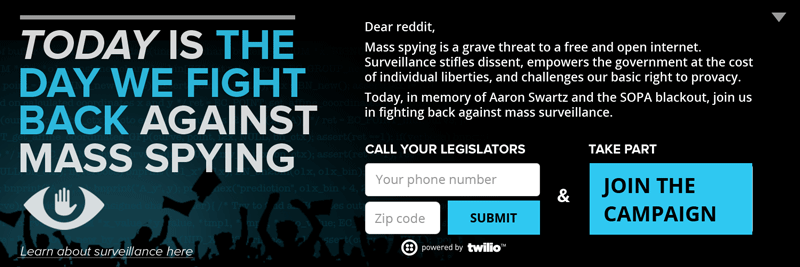Among the side-effects of government surveillance revelations, ordinary people are deciding to be a bit less involved in online activities, according to a new Harris Poll:
Online banking and shopping in America are being negatively impacted by ongoing revelations about the National Security Agency’s digital surveillance activities. That is the clear implication of a recent ESET-commissioned Harris poll which asked more than 2,000 U.S. adults ages 18 and older whether or not, given the news about the NSA’s activities, they have changed their approach to online activity.
Almost half of respondents (47%) said that they have changed their online behavior and think more carefully about where they go, what they say, and what they do online.
When it comes to specific Internet activities, such as email or online banking, this change in behavior translates into a worrying trend for the online economy: over one quarter of respondents (26%) said that, based on what they have learned about secret government surveillance, they are now doing less banking online and less online shopping. This shift in behavior is not good news for companies that rely on sustained or increased use of the Internet for their business model.
[…]
Whether or not we have seen the full extent of the public’s reaction to state-sponsored mass surveillance is hard to predict, but based on this survey and the one we did last year, I would say that, if the NSA revelations continue – and I am sure they will – and if government reassurances fail to impress the public, then it is possible that the trends in behavior we are seeing right now will continue. For example, I do not see many people finding reassurance in President Obama’s recently announced plan to transfer the storage of millions of telephone records from the government to private phone companies. As we will document in our next installment of survey findings, data gathering by companies is even more of a privacy concern for some Americans than government surveillance.
And in case anyone is tempted to think that this is a narrow issue of concern only to news junkies and security geeks, let me be clear: according to this latest survey, 85% of adult Americans are now at least somewhat familiar with the news about secret government surveillance of private citizens’ phone calls, emails, online activity, and so on.






